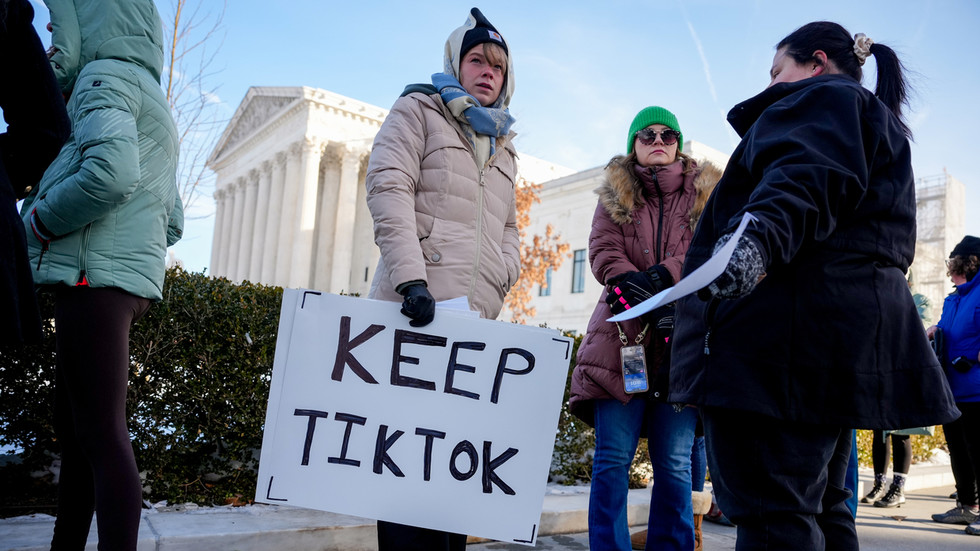Navigating the TikTok Dilemma: An Overview of the Biden Administration’s Next Moves
As the social media landscape continues to evolve at an unprecedented pace, platforms like TikTok have transformed how users interact, share content, and engage with each other. However, with great innovation comes significant concern, particularly surrounding data privacy and national security. The TikTok dilemma has emerged as a pressing issue for the Biden administration, prompting a reevaluation of how to effectively manage risks associated with foreign-owned apps. In this article, we will delve into the Biden administration’s potential strategies for addressing these concerns, the implications of a potential TikTok ban, and what this means for users and the broader social media ecosystem.
The Growing Concerns Around TikTok
Since its rise to fame, TikTok has attracted millions of users across the globe, particularly among younger demographics. However, the platform’s ties to China have raised significant red flags. Concerns about data privacy stem from the possibility that user data could be accessed by the Chinese government, given that the parent company, ByteDance, is based in China. These fears were intensified during the Trump administration, which attempted to impose a ban on the app, citing national security risks.
The Biden administration has inherited this dilemma, and it is now tasked with addressing these concerns in a manner that balances national security interests with the rights of users. The approach taken will not only influence TikTok’s future but also set a precedent for how the U.S. government deals with foreign technology companies.
Potential Strategies for Regulation
As the Biden administration navigates the TikTok dilemma, several strategies are being considered:
- Regulatory Frameworks: One of the primary strategies may involve developing comprehensive regulatory frameworks that govern data privacy and security for all tech companies, not just TikTok. Such regulations could mandate transparency regarding data handling and provide users with greater control over their personal information.
- Engagement with TikTok: Instead of outright bans, the administration may engage with TikTok to establish measures that ensure user data is stored securely within U.S. borders. This could involve the creation of a U.S.-based subsidiary that operates independently of its parent company.
- Increased Scrutiny and Oversight: The administration could implement increased scrutiny for foreign-owned applications, requiring them to undergo regular audits to assess their data privacy practices and compliance with U.S. laws.
- Public Awareness Campaigns: Educating users about data privacy and empowering them to make informed choices regarding their digital footprints could be a complementary strategy to any regulatory actions.
The Implications of a Potential TikTok Ban
The prospect of a TikTok ban raises several important questions and considerations:
Impact on Users and Content Creators
A ban on TikTok would dramatically affect its user base, particularly younger users who have developed a vibrant community on the platform. Content creators who rely on TikTok for their livelihoods would be especially hard hit. The app provides a unique avenue for self-expression, creativity, and even financial opportunity through sponsorships and brand partnerships. A sudden disruption could force these creators to seek alternative platforms, which may not offer the same level of engagement or monetization potential.
Social Media Landscape Transformation
A TikTok ban could lead to a significant shift in the social media landscape. Users might flock to competing platforms like Instagram Reels, YouTube Shorts, or other emerging applications. This shift could change the dynamics of content creation and consumption, leading to new trends and styles of engagement. While competition can drive innovation, it can also fragment audiences and dilute the unique culture that TikTok has fostered.
International Relations and Trade Considerations
Beyond the immediate effects on users and creators, a ban on TikTok could have broader implications for U.S.-China relations. It could be viewed as a hostile act, potentially prompting retaliatory measures from the Chinese government. The interconnectedness of global trade means that the tech sector could face ripple effects, impacting not just social media but also other industries reliant on cross-border data flows.
Conclusion: The Path Forward
The Biden administration finds itself at a crossroads, facing the TikTok dilemma with the weight of national security concerns and the expectations of millions of users. As they explore various strategies, it is crucial that they consider both the need for robust data protection measures and the importance of maintaining a vibrant and open digital ecosystem.
While the potential for a TikTok ban looms, it is essential to remember that the platform has become a significant part of the cultural fabric for many users. The future of TikTok, and other foreign-owned applications, will depend on the administration’s ability to strike the right balance—ensuring national security while fostering an environment where creativity and expression can thrive.
As we move forward, staying informed about the developments in this space will be paramount. Users, creators, and stakeholders must engage with the ongoing discussions and advocate for solutions that protect their interests without stifling innovation. The TikTok dilemma is not just a question of whether the app will continue to operate; it’s a question of how we will navigate the complex interplay of technology, privacy, and global relations in an increasingly digital world.
See more Future Tech Daily

